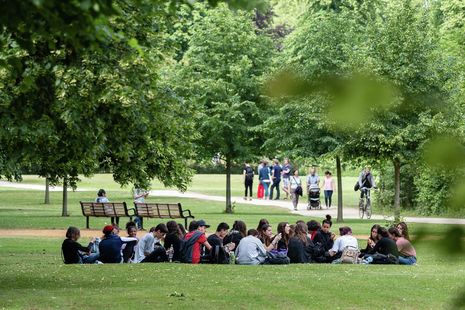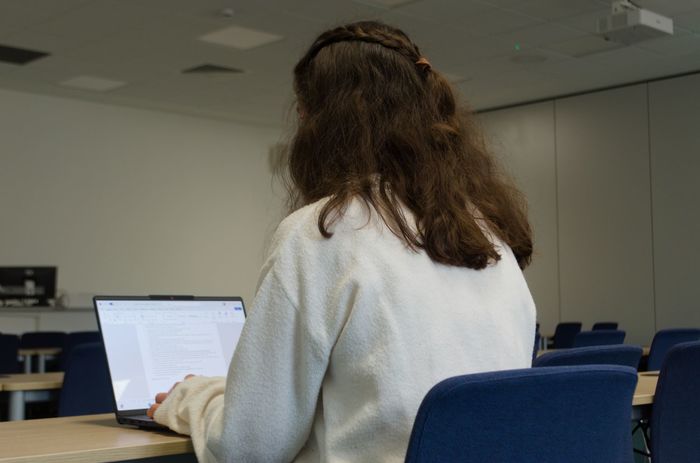The case for reading weeks
Katie Nicholson argues that a mid-term break would improve, rather than undermine, the Cambridge degree structure

First year History students get a reading week in Michaelmas and in Lent. But why only history and why just one year?
Admittedly, there are discrepancies in fairness here. The demands of reading weeks do differ across colleges. Some students only had seventeen pages to read in a week – less than most are required to read in a day. Nonetheless, the History Tripos is a step ahead of other degrees, providing students with something others lack. Reorganised because of concerns about the workload, the new History Tripos provides students with a welcome break, helping to ease first year students into their degree. This raises the question: wouldn’t all students benefit from a mid-term pause?
“While being a break, reading weeks still progress the degree”
Discussions over the implementation of reading weeks have been ongoing between the Students’ Union and the University, but with little progress. Students remain overworked for eight weeks without a break. Arguably, the lack of reading weeks are compensated for by the short terms. But this doesn’t offer the same restorative impact a reading week could. Eight uninterrupted weeks of lectures, readings, work, and supervisions leave students burned out, and disconnected from life beyond their subject.
The decision doesn’t have to be a binary one between these two options, though – the intense terms should allow students to take a break without excessively elongating them. This is how reading weeks were integrated for first year history students. Although short terms mean that weeks in Cambridge are balanced out by longer holidays, eight weeks of unsustainably intense study remain. Reading weeks offer a halt on academic demands, or at least a partial break.
Especially during the first couple of terms at university, the chance to go home, reset, and spend time with other students during a reading week was invaluable. More than just being a break from work, having a pause during term time provides students with the chance to explore the city, allowing Cambridge to feel more like a home than a work space.
“Wouldn’t all students benefit from a mid-term pause?”
Importantly, a reading week doesn’t need to mean pausing all academic work. For History students, the reading week is pretty much what it says on the tin - a time to read but without the usual demands of lectures and supervisions. It lowers the workload, rather than removing it all together. There’s more freedom to plan work around other activities with the rigid structure gone. This is an easy way a similar system could be integrated into other departments.
The focus for the week being on one paper for History students allows for full attention on one area of study, in contrast to the usual mission of balancing learning multiple papers at once. Students have a break from their other modules to discover new things and focus on one aspect of the course allowing for greater research and exploration. Admittedly, this isn’t practical for every subject. However, even if, in other departments, a reading week would take the shape of a contact hour free week, where focus could be dictated by the department or left up to students to use as they see fit, the break would still be beneficial. It could be a time to catch up on work, focus on a particular aspect of the course, or an opportunity to revise and research. While being a break, reading weeks still progress the degree.
Cambridge has many niche characteristics that set it apart from other universities. The collegiate system, supervisions, weekly essays, all offer a different experience of academia. But this doesn’t mean Cambridge has perfected the system. Maybe it’s time Cambridge forgets its tradition and prioritises the student experience. Following the lead of other universities, Cambridge should consider adopting reading weeks, making them a standard part of every degree.
 News / Downing Bar dodges college takeover31 January 2026
News / Downing Bar dodges college takeover31 January 2026 Fashion / A guide to Cambridge’s second-hand scene2 February 2026
Fashion / A guide to Cambridge’s second-hand scene2 February 2026 Comment / College rivalry should not become college snobbery30 January 2026
Comment / College rivalry should not become college snobbery30 January 2026 Lifestyle / Which Cambridge eatery are you?1 February 2026
Lifestyle / Which Cambridge eatery are you?1 February 2026 News / Deborah Prentice overtaken as highest-paid Russell Group VC2 February 2026
News / Deborah Prentice overtaken as highest-paid Russell Group VC2 February 2026









